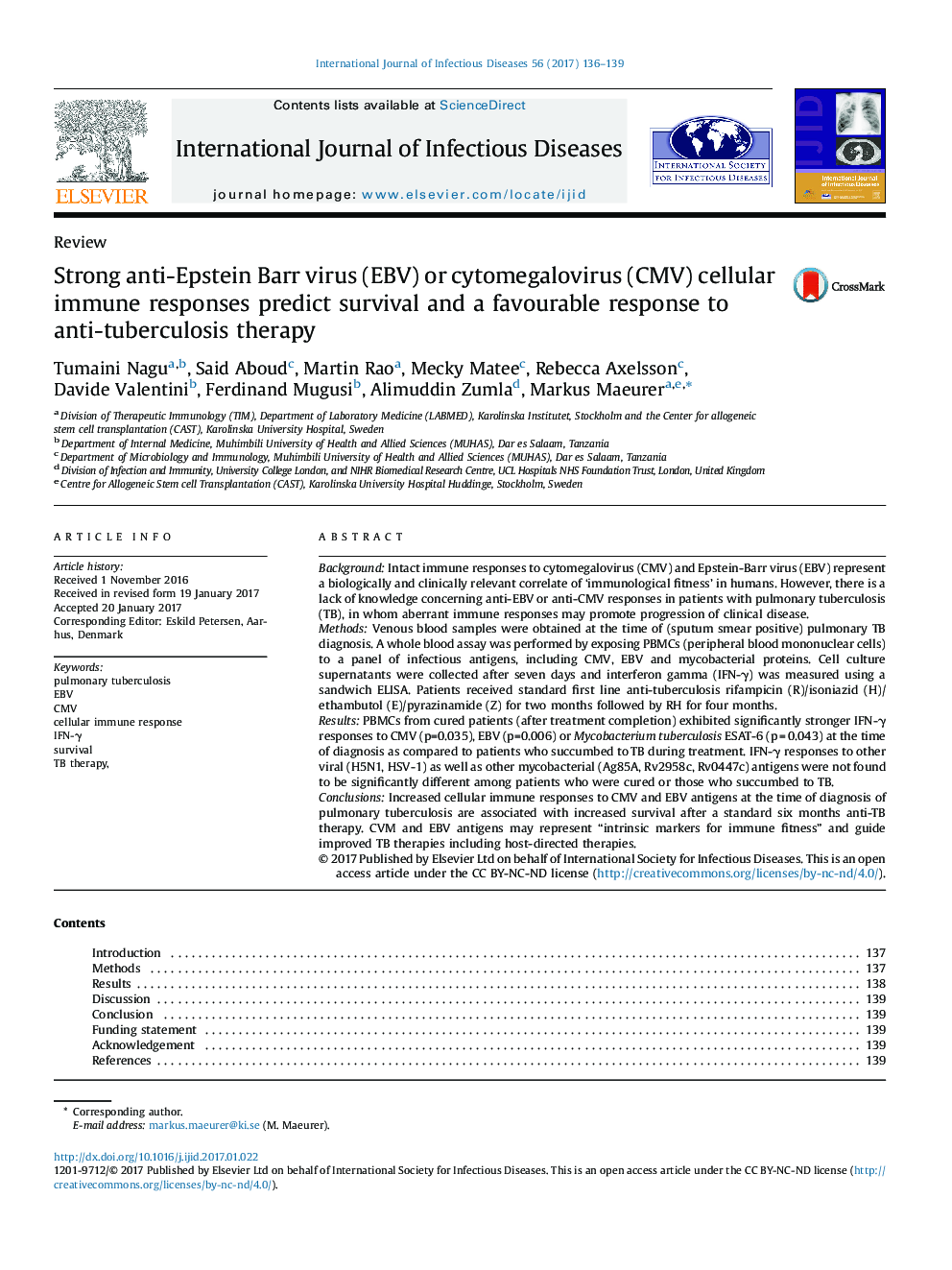| Article ID | Journal | Published Year | Pages | File Type |
|---|---|---|---|---|
| 5667575 | International Journal of Infectious Diseases | 2017 | 4 Pages |
â¢CMV, EBV and ESAT-6 - specific IFN-γ responses in patients with pulmonary TB at diagnosis correlate with cure and survival during anti-TB therapy.â¢CMV/EBV responses maybe good biomarkers to identify patients at high risk to succumb to TB disease.â¢CVM/EBV-vectored vaccines are recommended for future TB vaccine development.â¢CMV/EBV-specific cellular immune responses will be valuable in identifying time points for Host-Directed Therapies (HDTs).
BackgroundIntact immune responses to cytomegalovirus (CMV) and Epstein-Barr virus (EBV) represent a biologically and clinically relevant correlate of 'immunological fitness' in humans. However, there is a lack of knowledge concerning anti-EBV or anti-CMV responses in patients with pulmonary tuberculosis (TB), in whom aberrant immune responses may promote progression of clinical disease.MethodsVenous blood samples were obtained at the time of (sputum smear positive) pulmonary TB diagnosis. A whole blood assay was performed by exposing PBMCs (peripheral blood mononuclear cells) to a panel of infectious antigens, including CMV, EBV and mycobacterial proteins. Cell culture supernatants were collected after seven days and interferon gamma (IFN-γ) was measured using a sandwich ELISA. Patients received standard first line anti-tuberculosis rifampicin (R)/isoniazid (H)/ethambutol (E)/pyrazinamide (Z) for two months followed by RH for four months.ResultsPBMCs from cured patients (after treatment completion) exhibited significantly stronger IFN-γ responses to CMV (p=0.035), EBV (p=0.006) or Mycobacterium tuberculosis ESAT-6 (p = 0.043) at the time of diagnosis as compared to patients who succumbed to TB during treatment. IFN-γ responses to other viral (H5N1, HSV-1) as well as other mycobacterial (Ag85A, Rv2958c, Rv0447c) antigens were not found to be significantly different among patients who were cured or those who succumbed to TB.ConclusionsIncreased cellular immune responses to CMV and EBV antigens at the time of diagnosis of pulmonary tuberculosis are associated with increased survival after a standard six months anti-TB therapy. CVM and EBV antigens may represent “intrinsic markers for immune fitness” and guide improved TB therapies including host-directed therapies.
